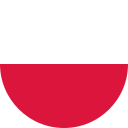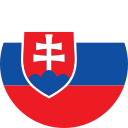
Alpine-Carpathian Tourist Knowledge Cluster
The project "Alpine-Carpathian Tourist Knowledge Cluster" (AKTKW) implemented under the Block Grant of the Swiss-Polish Cooperation Program. Affiliate Fund. Co-financed by Switzerland as part of the Swiss program of cooperation with new member states of the European Union.
Purpose of the project
The general objective of the project: building and creating the basis for the development of a strategic system of Polish-Swiss partnerships operating for the cooperation of entities related to the Alpine and Carpathian dimension of sustainable development in the field of tourism, in particular in the field of creating a management system for the "Carpathian brand" in tourism using the Swiss experience, which is expressed by AKTKW.
Implementation period : May 2012 - April 2013
Total project value : PLN 785,696
Own contribution SEKP : PLN 78,570
The main activities carried out under the project:
- April 2012 - Appointment of the Steering Committee
- May 2012 - employment of staff
- June 2012 - establishment of the Coordination Team
- June 22, 2012 - study visit to Switzerland and organizational meeting of the Coordination Team
- Q2 2012 - Q1 2013 - Steering Committee Meetings
- Q2 2012 - Q2 2013 - Development of a development strategy for the Carpathian Brand with the participation of Swiss experts
- Q4 2012 - Organization of the 1st AKTKW Forum as part of the Alpine-Carpathian Cooperation Forum (proposed postponement of activities to the 3rd quarter of 2012)
- Q3 2012 - Q2 2013 - Meetings of the Coordination Team
- Q3 2012 - Commissioning of analyzes of tourism development support systems in Poland and Switzerland
- Q1 2013 - Development of a process manual for AKTKW
- Q2 2012 - Launch of the AKTKW website
- Q2 2013 - Organization of a study visit for Polish shareholders of AKTKW in Switzerland
- Q2 2013 - Formal appointment and registration of AKTKW
Ultimately, the Alpine-Carpathian Tourist Knowledge Cluster is to be a permanent platform for the exchange of knowledge and experience at various levels of management within partner entities: Alpine self-government units, institutions and social partners of Polish local and regional authorities, institutions and social partners in terms of ensuring access to information and participation in the decision-making process to undertake activities in the field of tourism.
target group
Due to the implementation of the project, the most important target group is the tourism industry, which will gain support in the form of knowledge and experience as well as in the promotion of products and services.
The broadly understood tourism industry is:
- tour operators,
- owners of hotels, guesthouses, agritourism farms,
- local leaders involved in activities for the development of tourism,
- non-governmental community, to the extent that it undertakes activities in the field of tourism,
- journalists,
- regional and local self-government units,
- staff of the partners involved, due to the possibility of exchanging knowledge and experiences,
- tourists interested in natural and cultural tourism.


Carpathian Brand Strategy
Methodological assumptions of the strategy and its tools
The project aims to create a long-term strategy for the Carpathian Brand, based on the principles of striving to preserve the natural environment and the sustainable use of its resources. The planned activities and the resulting results will be conducive to shaping pro-ecological attitudes and to a large extent will focus on the promotion of the values of the Carpathian Euroregion, which will be conducive to the development of its entrepreneurship.
Stages of building the Carpathian Brand
The work on the Carpathian Brand strategy is introduced by public consultations and an extensive analysis of tourism support systems in Poland and Switzerland. These studies will prepare the basis for the creation of a real concept of the tourist development of the Carpathians and will allow for the transition to the implementation of operational activities:
- Visual identification system + architecture (Branded House).
- Stakeholders' agreement.
- Brand products / resource organization.
- Establishment of DMO (Destination Management Organization).
- Training of staff and partners.
- Image brand communication.
- Tourist offer and its distribution.
- Pilot sale.
- Product communication.
- First verification.
The implementation of the above stages is spread over two years. However, this does not mean the end of work on the Carpathian Brand after the above-mentioned period. Professionally conducted and improved activities in the coming years will allow, in the long term, to have a real and impressive impact on the increase of awareness of the Carpathians on the international, European and world arena.
Project Partner
The Institute of Tourism is a research unit operating since 2002 at the University of Applied Sciences in Sierre, Switzerland. Research workers are highly specialized professors at the University, which operates one of the most prestigious tourism schools in Switzerland - the Swiss School of Tourism. The activities of the Institute are focused, inter alia, on around:
- implementing innovative solutions for the creation and implementation of modern tourism products,
- use of modern ICT technologies to support integrated and sustainable management of enterprises and tourist destinations,
- creating modern tools related to monitoring the development of tourism in tourist reception places,
- tourism market research, in order to increase the competitiveness of enterprises and tourist destination areas, especially in Switzerland,
- extensive educational activities.
In 2005-2012, the Institute carried out many local and international projects.






